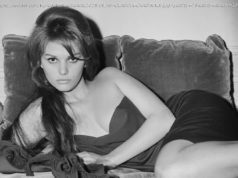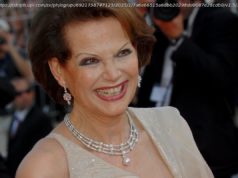Four years after his film “Ida” won the foreign-language Oscar, Polish director Pawel Pawlikowski has returned to the look of that film and to…
Four years after his film “Ida” won the foreign-language Oscar, Polish director Pawel Pawlikowski has returned to the look of that film and to the unsettled arena of Europe in the decades after World War II. “Cold War,” which had its world premiere on Thursday night at the Cannes Film Festival’s Grand Theatre Lumiere, shares some strengths with its predecessor, but this is a movie of the flesh, not the spirit.
In the director’s last film, a young woman on the verge of becoming a nun travels through a sparse countryside still haunted by the ghosts of World War II. “Ida” is an austere film, but one that plumbed the depths of postwar guilt and tragedy and made its characters fight for their faith.
This time around, his characters move in a landscape that was formed by the war: a divided Europe, with Poland under the sway of Stalin’s Soviet Union and suspicious of Western influences. And this time, his lead characters, Zula and Wiktor, are fighting for love, meeting in different cities at different times to reclaim a bond that began when Zula was a young music student and Wiktor was her instructor.
Europe in the 1940s and ’50s has been a fertile setting for doomed love since “Casablanca,” and “Cold War” gives us another of those. But Pawlikowski is a lyrical, mysterious filmmaker with a ravishing visual sense; if we’ve seen lovers pulled together and torn apart in Paris and Berlin before, we haven’t seen them look and feel like this.
In “Ida,” Pawlikowski shot in lustrous black and white and used an almost square 4:3 aspect ratio, which almost feels square to the viewer; it disconcerted his original cinematographer, and often made his characters feel isolated with a large amount of space above their heads.
He does the same thing on “Cold War,” often to similar effect, but he also finds other astonishing shots: a gorgeous sequence where Zula floats down a river on her back with all but her face and hands submerged, and a final scene where the couple stages their own ceremony in a derelict, haunted church.
But then, all of “Cold War” is haunted – partly by the conflict that tore a continent apart and put it back together with a fault line down the middle, and partly by matters of the heart. But its characters only glancingly face their ghosts; most of the time, they sing and play their songs (Polish folk tunes, then anthems to Stalin, then ’50s jazz and pop), fall in and out of other relationships and try to pretend that they can each live without their soulmate.
They can’t, of course, but they can’t really live with their soulmates, either. Joanna Kulig makes Zula impetuous and daring, Tomasz Kot gives Wiktor deep reserves of longing and sorrow, and together they make their way through a landscape that would be inhospitable even to less tortured and less complicated lovers.
If it doesn’t feel as fresh and bracing as “Ida” did, that film may have been the perfect combination of form and content. “Cold War,” which is Pawlikowski’s first entry in Cannes main competition, is in some ways more familiar, but the spin he puts on it is distinctly and beautifully his own creation.
Read original story ‘Cold War’ Film Review: Romance in Postwar Europe Is Ravishing and Haunted At TheWrap






